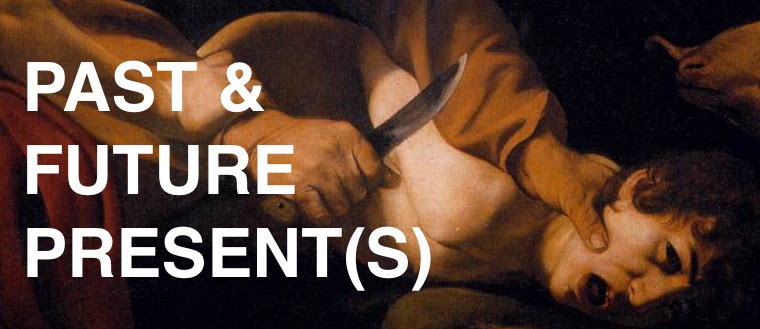 |
| "Meditierender Bosnischer Mohammedaner"by Damir Nikšić |
I do think that right now in the United States there is an increasing tendency to regard Islamic cultures or "non-Western"--whatever they mean by that--cultures as barbaric, and so it becomes increasingly important to try to understand the different sorts of violence that come from neocolonial state formations. One can't give a culturalist explanation for intra-Iraqi violence for instance, but one has to situate those conflicts within larger global economic and political forms of hegemony. The U.S. imagines that it stands for both culture and civilization, and yet it cannot explain its own cruelty and torture within this self-definition. Thus it casts the violence it cannot explain as the nascent cultural violence of Arab cultures or Islam, even as it periodically invokes a doctrine of tolerance toward this same "Other." Here is a notion of the "Other" one must clearly
work to dismantle.
The post of postcolonial does not mean that the colonial is "over"; it means that one has to chart the formations of its enduring and animated aftermath. The culturalist deformation of Islam refuses to consider the colonial histories that continue to operate in that region, so we need a new way of thinking about both temporality and spatiality to do this. And that is clearly part of what postcolonial studies has done for contemporary cultural theory. We have to be able to think a history that remains animated in and through its ruins.
- Judith Butler, "Accounting for a Philosophic Itinerary: Genealogies of Power and Ethics of Nonviolence," in Politics of Culture and the Spirit of Critique: Dialogues. (2011)
 |
| Saadat Hasan Manto |
Many, perhaps most, human societies have used or still use, in differing ways and circumstances, substances which offer those who adopt them temporary access to an extraordinary set of experiences. Temporary escapes from history (partial or total) is an unavoidable ingredient in human history. But the degree of control which each culture--naturally in addition to the individuals who compose them--exercises over these substances varies greatly, and is only in part explainable by a pharmacological analysis of their effects. On each occasion a cultural component, a filter, also intervenes, although how it functions it functions largely eludes us. Why, one may ask, have alcoholic beverages with which, for better or worse, European societies have learned to live in the course of a few millennia (in the case of wine) or only a few centuries (with distilled liquors) had such a destructive effect in just a few decades in the native cultures of North America?
This is an obvious example. I mention it here because it permits me to introduce an extraordinary passage from a report which the French Jesuit Paul de Brebeuf sent in 1636 to the provincial of his order to inform him of events occurring that year in the Quebec mission. One of the members had explained to the natives (the report naturally calls them "sauvages" [savages]) that their high mortality rate was caused by the wines and liquors, which they did not know how to consume in moderation. "Why do you not write to your great King," one of the natives asked, "to prohibit the transporting of these beverages which are killing us?" "The French," the Jesuit answered, "need them to help them stand the sea voyages and the freezing temperatures of these places." "Well, then," the other said, "arrange that they be the only ones to drink them." At this point, a second native stood up: "No, it is not these beverages which kill us, it is your writings. As soon as you started to describe our country, our rivers, our lands, our forests, we all began to die, in a way that was not happening before you came."
- Carlo Ginzburg, "The Europeans Discover (or Rediscover) the Shamans," in Threads and Traces: True, False, Fictive. (2012)
 |
| Walter Benjamin |




No comments:
Post a Comment